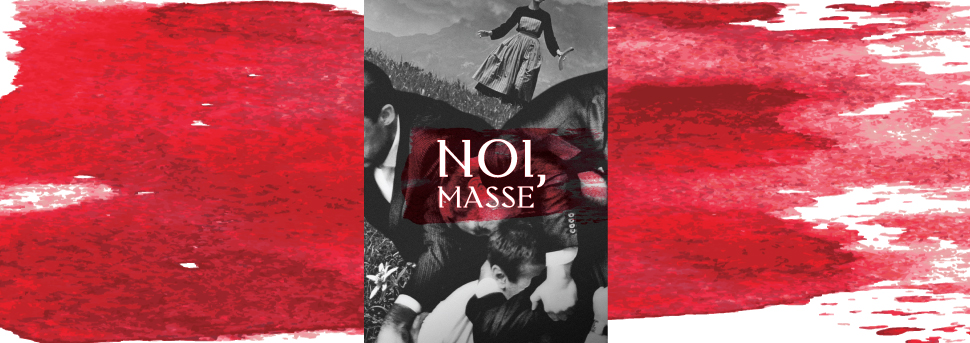arbiter Patrizia Bernardi
in field Alberto Sarti, Andrea Fugaro, Anna Amadori, Carolina Talon Sampieri, Chiara Guadagnini, Daniela Cotti, Fabrizio Croci, Francesca Mazza, Gianluca Enria, Nunzio Calogero, Olga Durano, Saverio Peschechera, Selvaggia Tegon Giacoppo, Stefano Toffanin
in bench Camilla Quarta, Delia Porcu, Dimitris Papadopoulos, Elisa Moscatelli, Giulia Lorenzetti, Giulio Maria Corbelli, Giuseppe Pagliarisi, Gloria Lanzoni, Ilaria Cecchinato, Lorenzo Pacilli, Piero Giovannini
on the ground Eva Robin’s
lights, scenes and costumes Andrea Barberini
with the collaboration of Chiara Guadagnini
technics Francesco Bala, Rabii Sakri
graphiccs Albertina Lipari De Fonseca
photos Giulio Maria Corbelli
by Daniela Cotti, Monica Nicoli, Saverio Peschechera, Davide Preti, Alberto Sarti
thanks to Stefano Casi, Giulio Maria Corbelli, Elena Di Gioia
in collaboration with Emilia Romagna Teatro, Festival Focus Jelinek
il sostegno di Comune di Bologna – settore cultura, Regione Emilia-Romagna – servizio cultura, Ministero per i Beni e le Attività Culturali
Running time 2h 30′
World première
Andrea Adriatico presents the world premiere of his last work based on the pièce Sport. Ein Stück by Elfriede Jelinek, one of the most irreverent and revolutionary voices of the literary and cultural scene of the twentieth century. The one and only protagonist of this work is the sphere of the language, which imposes its terrible force on every other element. Without any psychological investigations, actions or characters, in this Jelinek’s play the one and only performers are the expression patterns, historically and socially determined, and the language, or rather the ‘langue’ in the sense of Saussure. Awarded with the Nobel Prize for Literature in 2004 for the “musical flow of singing and counterpoint in her novels and plays that, with extraordinary linguistic zeal, reveal the absurd clichés of our society and their subjugating power”, Jelinek comes out soon on top also for her theatre works, which go beyond the expressive radicalism and the linguistic experimentation of authors such as Samuel Beckett or Thomas Bernhad. Partly influenced by her training as an organist, Jelinek’s pièces don’t proceed by dialogues but by rhythms, as if they were musical scores: a real test for actors and directors who accept the challenge of staging a Jelinek’s text.



